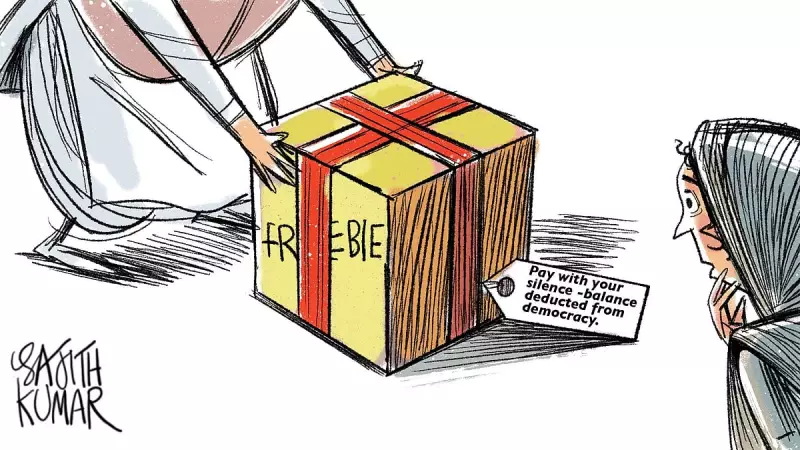
In a striking visual commentary that speaks louder than words, a recent political cartoon has captured the complex dynamics of Indian democracy with remarkable clarity. The artwork, featured in Deccan Herald, presents a thought-provoking perspective on the current state of democratic processes in the world's largest democracy.
The Power of Visual Satire in Political Discourse
Political cartoons have long served as a mirror to society, reflecting the triumphs and tribulations of democratic systems. This particular illustration masterfully encapsulates the paradoxical nature of modern Indian politics, where democratic institutions sometimes deliver outcomes that challenge the very principles they're meant to uphold.
Democracy's Ironic Presents
The cartoon cleverly portrays democracy as a gifting mechanism, presenting citizens with outcomes that may not always align with their expectations or democratic ideals. This visual metaphor resonates deeply in today's political climate, where election results and policy decisions often generate mixed reactions across the political spectrum.
Why This Cartoon Matters Now
As India continues to navigate its democratic journey, such artistic expressions serve as crucial checkpoints for public reflection. The cartoon doesn't just entertain—it prompts important questions about representation, governance, and the health of democratic institutions in contemporary India.
The timing of this publication is particularly significant, coming at a moment when democratic norms are being tested globally. For Indian readers, it offers a moment of pause to consider what democracy truly means in practice versus theory.
The Artist's Democratic Voice
Through simple yet powerful imagery, the cartoonist demonstrates how art can contribute to democratic dialogue. Without using a single word, the cartoon communicates complex political realities that might take paragraphs to explain in written form.
This form of expression remains one of democracy's most vital components—the ability to critique, question, and comment on the system through various mediums of expression.






